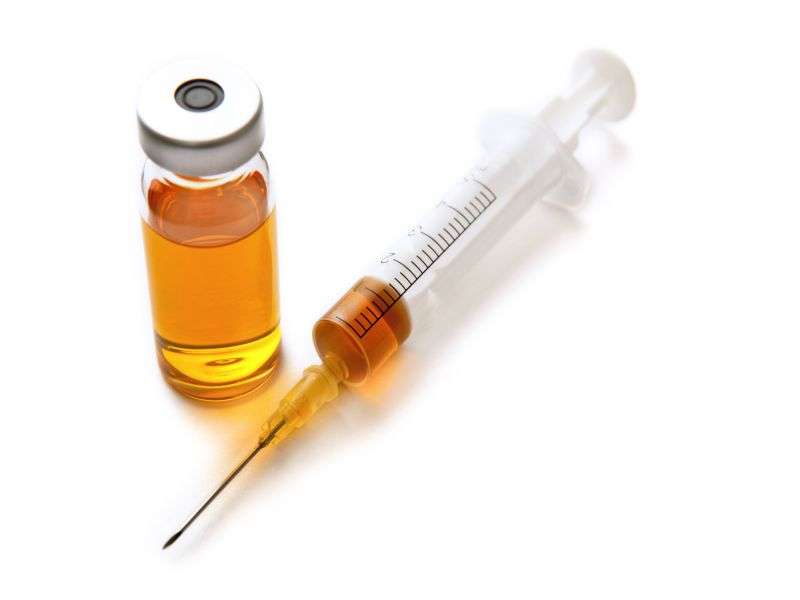Scientists piggyback experimental HIV vaccine on cold viruses

(HealthDay)—Scientists report progress in their bid to develop ways to piggyback an HIV vaccine on germs that cause colds.
In the new study, Harvard researchers said they successfully used cold viruses to deliver an experimental HIV vaccine to humans.
The approach "appears to be safe and well-tolerated, and the injection induces a moderate immune response against HIV in humans," said Dr. James Crowe, director of Vanderbilt Vaccine Center in Nashville. He was not involved in the study.
The research doesn't mean that a long-sought HIV vaccine is near; these scientists focused on developing better ways to deliver a potential vaccine into the immune system.
Researchers have long sought to develop a vaccine against HIV, but the virus is especially stubborn.
"Most experimental vaccines tested to date don't seem to induce strong or protective immune responses," Crowe said. Even when they work well, he said, they tend to only prevent infection with a single strain and not the many strains of HIV that infect people.
In the study, the researchers piggybacked an experimental HIV vaccine onto two types of cold virus—adenovirus serotype 26 and adenovirus serotype 35. These cold viruses are rare, Crowe said, so most humans wouldn't have developed immunity to them.
The researchers then injected 217 healthy people not infected with HIV in Boston and parts of Africa (Kenya, Rwanda and South Africa) with at least one cold virus/HIV vaccine combo or a placebo. Seventy-eight percent of the subjects were black. Seven participants dropped out and didn't finish follow-up tests.
The findings showed that the cold viruses are a safe way to deliver the vaccine, and the vaccine triggered an immune response in most of the people, said study co-author Dr. Dan Barouch. He is director of the Center for Virology and Vaccine Research at Beth Israel Deaconess Medical Center and a professor of medicine at Harvard Medical School, both in Boston.
According to the study, nearly 16 percent of those who got the actual vaccine suffered moderate to severe problems near where they were injected. But the study authors said no one suffered severe side effects from the vaccine itself.
It's not clear if the effects of the vaccine will last past a year. The cost of vaccines using this approach is unknown, although Crowe said it's "cost-effective" to deliver vaccines into the body via cold viruses.
One expert noted another positive finding that came from the study.
"They also found out that giving two vaccines over three months is just as good as waiting until six months for the second dose," said Dr. Susan Buchbinder, director of the Bridge HIV research unit with the San Francisco Department of Public Health. "That is a big advantage, as more people are likely to complete their vaccination if the doses are closer together, and the immune response, if protective, will start protecting them sooner."
The research was funded by several organizations, including the International AIDS Vaccine Initiative, the U.S. National Institutes of Health, and Crucell, a vaccine maker that's part of the Janssen Pharmaceutical Companies of Johnson & Johnson.
What's next?
More research is needed to determine whether this strategy will protect people at risk of getting infected by HIV, Crowe said. Studies of this type are "quite large and complex," he said, and they're likely to require several years before the results are known.
Study co-author Barouch said this research is part of a larger effort to explore ways to piggyback vaccines onto cold viruses. Crucell has said that it's studying the use of these particular cold viruses to deliver an Ebola vaccine into the human body.
The study was published Feb. 2 in Annals of Internal Medicine.
More information: Full text of the study paper
For more about HIV vaccine research, visit the U.S. National Institute of Allergy and Infectious Diseases.
Copyright © 2016 HealthDay. All rights reserved.



















